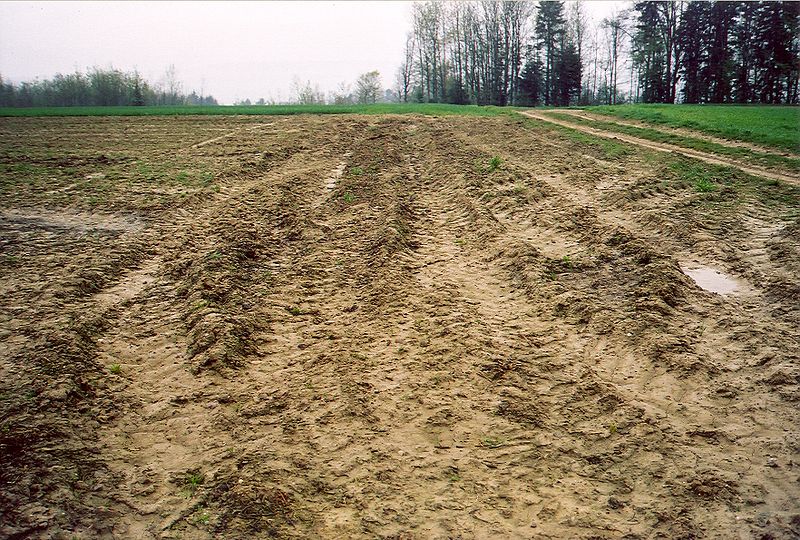Soil plays a pivotal role in how plants develop. It is responsible for providing moisture and nutrients to root systems, while filtering out toxins. Maintaining proper soil structure is important, but sometimes soil can become compacted, impeding its ability to help plants grow. The following is an overview of what causes soil compaction, and how it impacts soil.
What Is Soil Compaction?
Soil compaction is a process that occurs when soil particles are pressed together by external forces. Soil compaction changes soil strength and distribution, while reducing pore space size. Excessive soil compaction can destroy soil structure, minimize porosity, limit water and air infiltration, and increase resistance to root penetration from plants. It can have devastating effects on trees, with many often experiencing significant foliage loss.
What Causes Soil Compaction?
Soil compaction is caused by two types of forces: those that occur naturally, and those that are influenced by humans.
Rainfall is a natural force that causes soil compaction. During severe storms, rain saturates the soil, allowing the soil particles to slide together. As the rain subsides, the soil begins to dry out, and a hard crust forms on the surface. The thick soil layer will often hinder the emergence of seedlings, inhibiting plant growth. It can also create blockages in the soil, preventing proper aeration. The lack of air filtration can cause soil degradation, resulting in nutrient and potassium deficiencies.
Wheel traffic is a major cause of soil compaction. When heavy vehicles such as lawn mowers, automobiles, or construction equipment pass over soil, they exert massive pressure that pushes aggregates together. Vehicles that weigh over twenty tons can produce more compaction at greater depths, and potentially overwhelm the bearing strength of the soil. When this occurs, soil structure is often destroyed, with few large pores remaining.
In parks and other recreational areas, this tends to occur on a smaller scale, with trees and soil susceptible to compaction resulting from foot traffic, bicycles, and maintenance equipment.
Improper mulching or a lack of mulching can leave soil exposed, and increase the potential for soil compaction.
Tillage operations are another common cause of soil compaction. Frequent plowing, tilling, or disking at the same depth can create thin layers of compacted soil. These layers often develop poor soil structure, and lack proper aeration.
Limiting crop rotation in gardens can inhibit the development of different rooting systems that help to prevent subsoil compaction. Planting a new variety of crops each year can reduce compaction, and contribute fresh organic matter into the soil.
The Effects of Soil Compaction:
As soil particles are pressed together, soil experiences an increase in bulk density. This increases soil strength, but causes the destruction of large pores, which are responsible for air and water movement. As a result, less water can pass through the soil, increasing the potential for runoff and soil erosion. The poor filtration may also cause water to linger on the soil surface, eventually leading to the formation of a hard soil crust that can hinder plant development.
Positive Effects:
Slightly compacted soil can accelerate seed germination by encouraging contact between seed and soil. This is effective in dry conditions when there is no water to promote further compaction. Moderate compaction can help maintain soil moisture, and prevent soil from drying out. It also encourages root expansion, which is important for plant stabilization and nutrient uptake.
Negative Effects:
Excessive compaction impedes root growth and limits root expansion. This impacts the ability of plants to absorb nutrients and water. In wet conditions, soil compaction decreases aeration, which inhibits root respiration and prevents nitrogen from being released into the atmosphere. The reduced aeration may also result in nitrogen and potassium deficiencies. In addition, soil compaction can cause erosion, leading to severe soil loss.
Photo courtesy of Volker Prasuhn.


